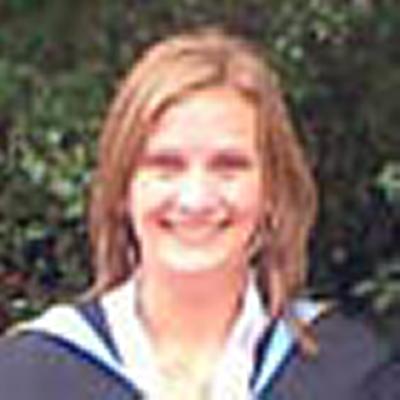Claire Newill MEnvSci Environmental Sciences
Natural England External Funding Senior Adviser

I chose to study Environmental Sciences at Southampton because of the multidisciplinary nature of the degree. The course allowed for me to study across departments. When I selected an engineering unit I was taught by an engineer and the same for biology, physics, and geography.
What did you enjoy about the course?
I enjoyed the freedom Environmental Sciences offered to personalise my degree. I choose a pathway that focused on the freshwater environment. During my 1st year I was offered the opportunity to apply to transfer onto the 4 year undergraduate masters. This meant that I had the opportunity to complete additional units in my fourth year and undertake an extended dissertation. I particularly enjoyed the field courses and practical nature of the Environmental Sciences units.
What’s Southampton like as a place to study?
Southampton was a great place to study, all the facilities you could ever need were on hand. The computer facilities and library resources were excellent. Other student facilities including health care, the student union and sports centre are all very modern.
Was your degree useful for your career?
I choose to study Environmental Sciences because of a genuine desire to enter into the environment sector when I graduated. I gained work experience during my fourth year working for Natural England (English Nature at the time) and I worked with the Environment Agency to select the sites for my dissertation data collection. Any work experience you undertake and the skills you gain during your time studying Environmental Sciences will help to make you attractive to future employers. Employers tend to look for an interest in your area of expertise above and beyond the standard level of study.
Tell us about your career since graduation
A couple of months after graduation I was offered a job as Ingrebourne Valley Project Officer for Essex Wildlife Trust. I was seconded to the London Borough of Havering. My role involved me developing and delivering environmental projects, fundraising and promoting the area. In 2008 I secured just under £0.5million from the Heritage Lottery Fund to implement a programme of environmental enhancements to the area and employ two new members of staff for the next 3 years. While I worked for the Trust I also got involved in London wide initiatives, including the East London Green Grid, and worked with statutory organizations including the Environment Agency and Natural England. After two and a half years working for the Trust, I decided that I wanted a new challenge. In June 2008 I was offered my new role as Funding & Development Officer for environmental regeneration charity Groundwork. Based in North London, we work across four London boroughs, Camden, Islington, Westminster and Haringey. In my new role I work with colleagues, partners and community groups to secure funding to implement projects to enhance run down areas on housing estates, parks and open spaces or install new play or sports facilities. Groundwork are also involved in helping people back into employment.
What advice would you give to a student starting out on a ES degree at Southampton?
To get involved in the social elements of the course and make the most of being a student in Southampton by getting involved in things outside of the standard programme of study.
Why did you choose to study ES at Southampton?
I chose to study Environmental Sciences at Southampton because of the multidisciplinary nature of the degree. The course allowed for me to study across departments. When I selected an engineering unit I was taught by an engineer and the same for biology, physics, and geography. This meant that the understanding of each subject area of an Environmental Science student was expected to be as detailed as those studying an engineering, biology, physics and geography degree, making our grades comparable to others who were specialising in these subjects.